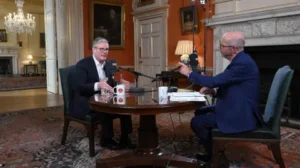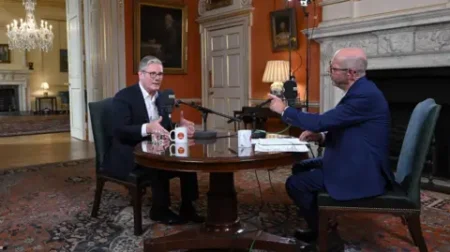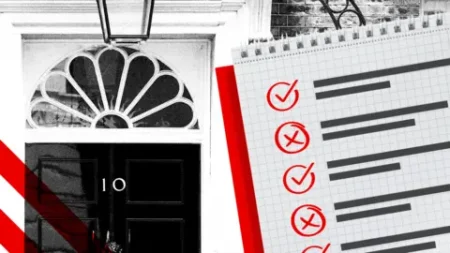**Zarah Sultana’s Departure from Labour: A New Era with Corbyn**
Zarah Sultana, the suspended Labour MP for Coventry South, has made headlines with an audacious announcement: she is resigning from the Labour party to co-found a new political entity with former Labour leader Jeremy Corbyn. This development marks a significant shift in Sultana’s political journey, as she cites her departure as pivotal in her struggle for systemic change within the British political landscape.
Sultana’s departure comes on the heels of a tumultuous relationship with the Labour Party. After 14 years of membership, she was expelled from the party last year for supporting a movement to abolish the controversial two-child benefit cap. This policy has become a contentious issue, reflecting deeper societal divides and debates over welfare reform in the UK. Driven by frustration with the current political establishment, Sultana is not simply looking to endorse a new party; she is aiming to challenge and disrupt what she describes as a “broken” Westminster system.
In her announcement, Sultana emphasized her commitment to justice and humane governance, identifying key catalysts for her new political direction. These include escalating poverty rates, the government’s stance on welfare support, and the cost of living crisis gripping many British households. Sultana boldly criticized the government, asserting that it plays an active role in what she deems genocidal actions in Gaza, reflecting her stance on international humanitarian issues. Her social media posts reflect a growing frustration, claiming, “Labour has completely failed to improve people’s lives,” and criticizing the reactions of political figures across the spectrum who have marginalized dissenting views.
This move to create a new party has garnered attention not just for Sultana’s bold exit, but also for Corbyn’s potential involvement. While he has yet to explicitly confirm his participation, recent comments he made hint at a willingness to unite like-minded individuals in forming a cohesive political group. Highlighting a “thirst for an alternative,” Corbyn previously suggested through ITV’s Peston that a new coalition among progressive voices could emerge.
The political ramifications of Sultana and Corbyn’s endeavors could be substantial. If they succeed in galvanizing support among other independent MPs, activists, and campaigners, they may disrupt the current Labour leadership’s agenda under Keir Starmer, who has been criticized for steering further away from the party’s traditional left-wing roots. The implications of this new partnership could reshape the way political dynamics unfold, possibly appealing to a constituency that feels increasingly disenfranchised by the main party’s policies.
Sultana has made it clear that her vision for the new party will center around constructive changes aimed at alleviating suffering for underrepresented groups, including those most affected by current government policies. She passionately stated, “The next election will present a stark choice: socialism or barbarism,” underscoring her belief in the urgency of their mission. Such declarations signal a distinct ideological departure from centrist politics, and she posits that failing to address these pressing issues will lead to dire consequences for many citizens.
As developments continue to unfold, it remains to be seen what form this new party will take and how it will unify various factions within the left. For now, Zarah Sultana’s decision to leave Labour in search of a new political home represents not just her individual ambition, but a broader movement of dissatisfaction within the party and its current trajectory. With her eyes set on building a vital alternative, she certainly aims to capture the spirit of activism that drove her political career thus far, and the coming months hold promise for significant changes in the landscape of British politics.











